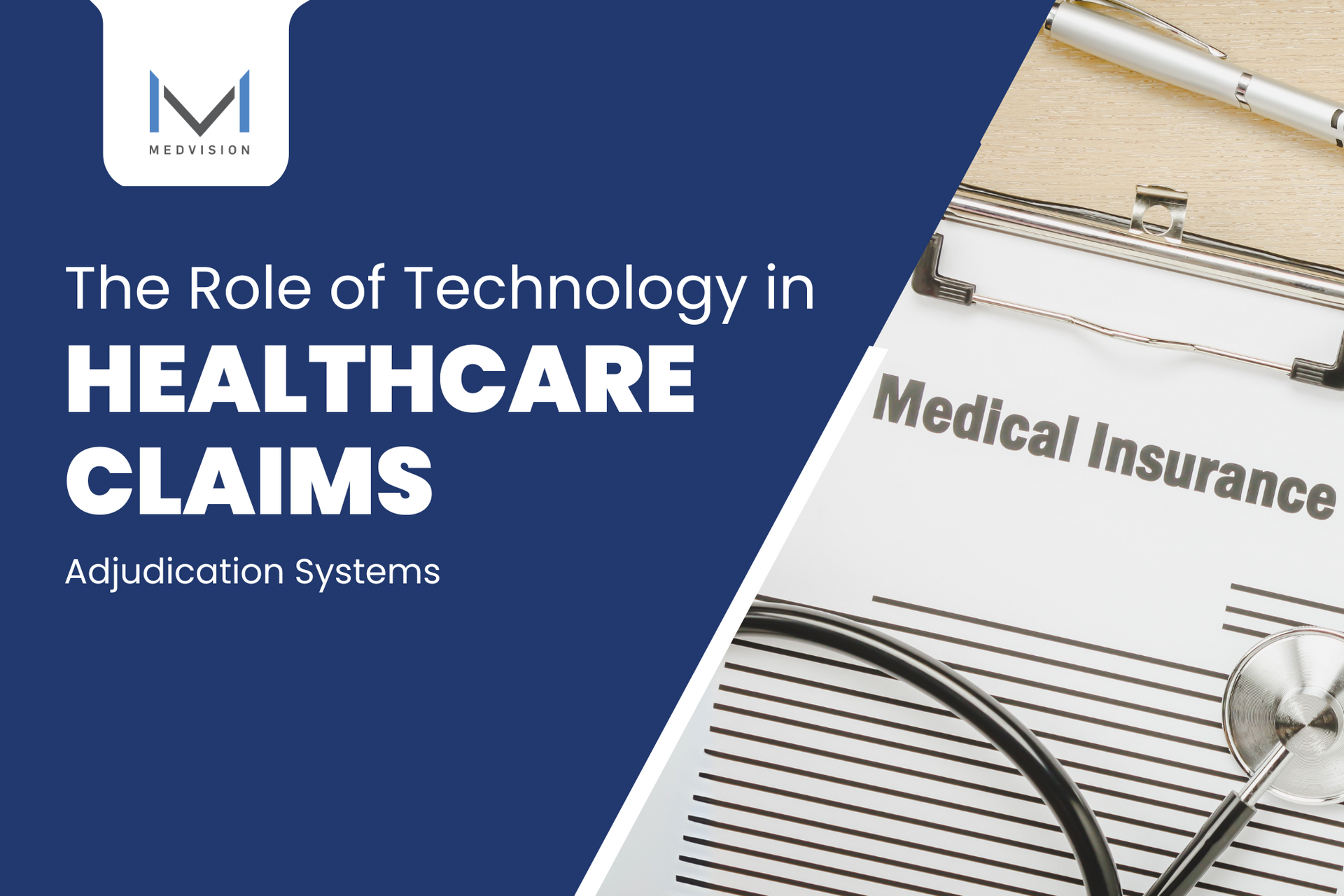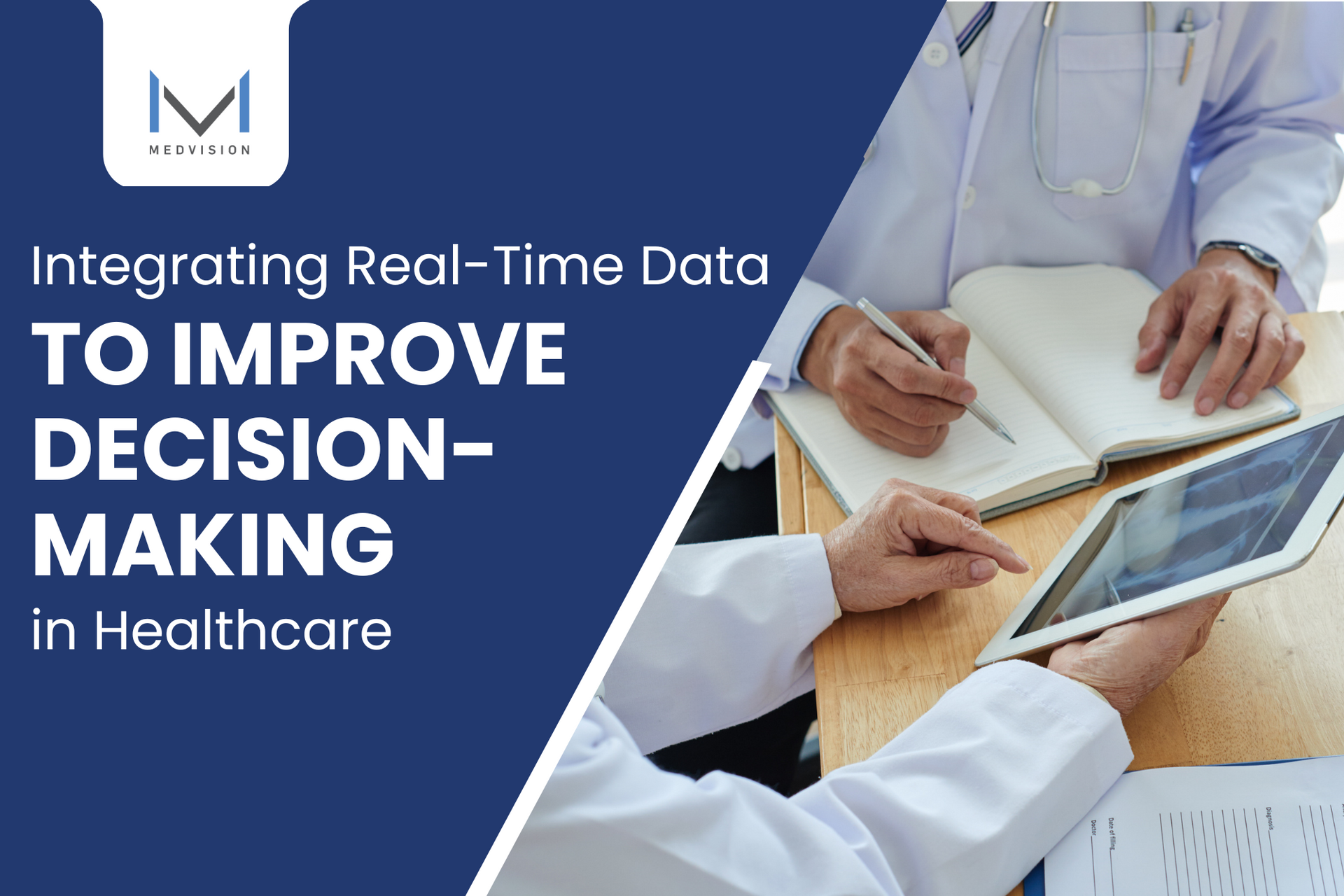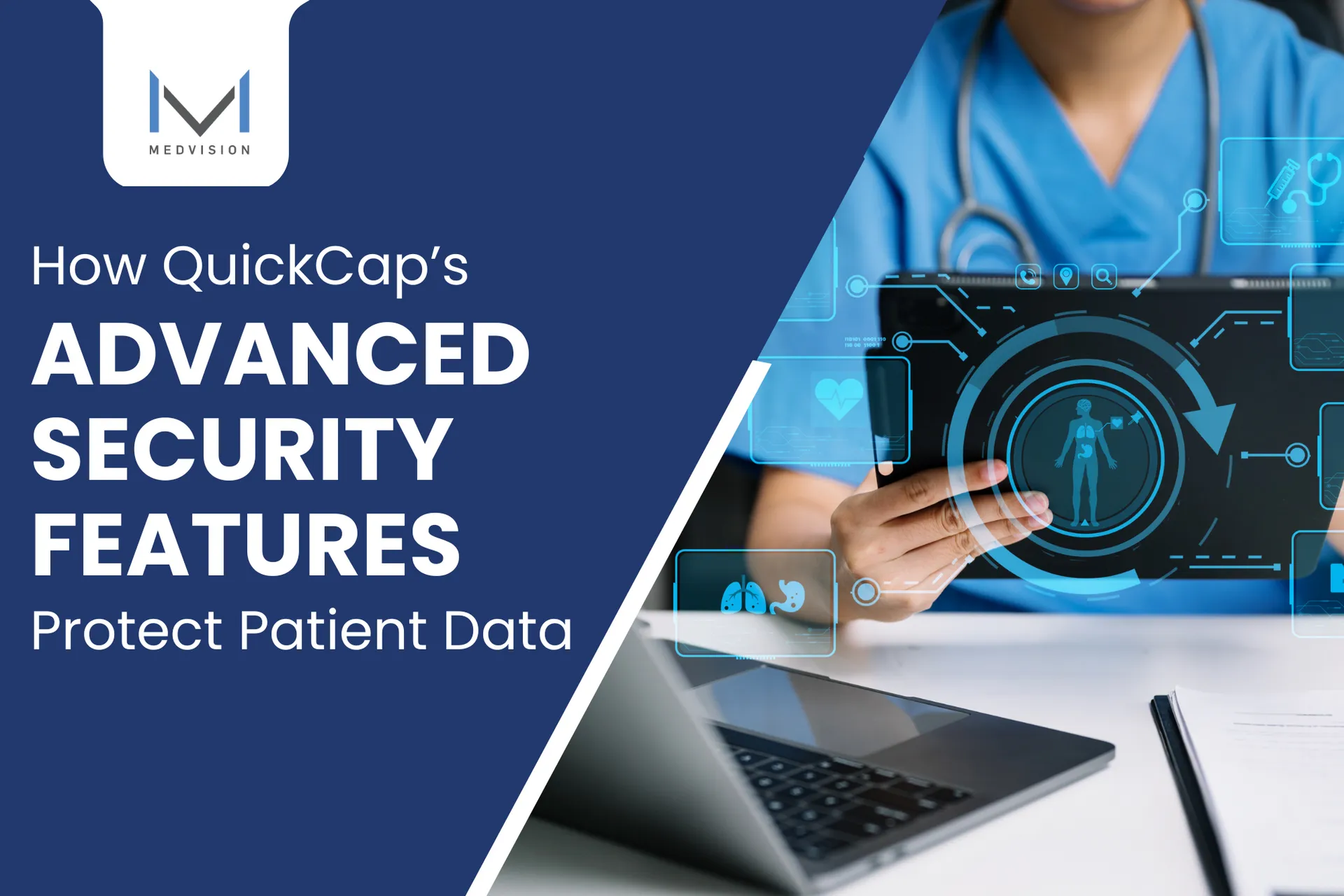The Role of Technology in Healthcare Claims Adjudication Systems

The complexity of healthcare claims adjudication has long been a challenge for providers, payers, and patients.
Traditional methods made the system slow and susceptible to errors so that even the slightest mistake could lead to claim rejections or denials, causing significant delays and revenue issues for healthcare providers.
Today, new solutions, such as MedVision’s QuickCap, are revolutionizing the claims adjudication process. Let’s discover the latest medical claims processing technology trends and their impact on the industry.
Improve Your Claims Adjudication Process
Leading Technologies in Claims Adjudication Systems
Healthcare providers and third-party administrators (TPAs) can use claims adjudication software systems to streamline
the processing, evaluation, and payment of healthcare claims.
These systems automatically verify claim details, check policy compliance, and determine accurate reimbursement amounts.
The latest healthcare claims management software harnesses the power of advanced technologies to streamline medical claims management.
These innovations reshape how healthcare organizations handle claims, resulting in more robust and reliable systems.
Below are the top technological advancements driving this transformation.
1. Automation and AI
Automation minimizes human error, ensuring claims are processed both accurately and quickly. AI algorithms further enhance this by swiftly evaluating claims against policy rules and flagging any discrepancies or errors that manual review might miss.
With auto adjudication, healthcare organizations can significantly reduce labor costs. Not only does this cut costs, it also frees up your staff to concentrate on more impactful and value-added activities.
2. Machine Learning
Machine learning, a subset of AI, trains algorithms to analyze historical data and continuously improve their accuracy and efficiency, eliminating the need for explicit programming.
In the context of claims adjudication, machine learning algorithms analyze historical claims data to identify unusual patterns that may indicate fraud.
By learning from past fraud cases, these models become increasingly adept at flagging suspicious claims for further investigation.
Machine learning can forecast the likelihood of claim approval, estimate potential costs, and predict expected processing timeframes.
This innovation enables healthcare providers and payers to manage resources more effectively and improve operational efficiency.
3. Blockchain Technology
A blockchain functions like a digital ledger spread across a network of computers, securely recording each transaction. Its decentralized nature ensures that no one can alter the historical data, maintaining a transparent and unchangeable record.
For health insurance processes, blockchain provides a secure and tamper-proof method for recording transactions. Every transaction is encrypted and connected to the previous one, creating a secure chain that is nearly impossible for unauthorized parties to tamper with.
Blockchain also creates an immutable record of all transactions, accessible only by authorized parties. Such transparency ensures all stakeholders have a clear and consistent view of the claims process, reducing disputes and improving trust.
4. Cloud Computing
A study on Cloud Technologies emphasized how cloud solutions offer the U.S. healthcare industry a way to deliver efficient, cost-effective services while safeguarding patient data in today's digital age.
Cloud computing involves delivering computing services—such as storage, processing power, and applications—over the internet ("the cloud").
Cloud systems enable authorized users to access claims data and adjudication tools from anywhere with an internet connection.
This accessibility facilitates remote work, collaboration, and real-time updates, making the claims process more efficient and responsive.
Modernize Claims Adjudication with QuickCap

QuickCap is a comprehensive healthcare administration software designed to support payers and providers by automating and optimizing organizational workflows.
Key functionalities include claims processing, referral and authorization management, financial transactions, and capitation eligibility handling.
While numerous healthcare claims adjudication software options exist, QuickCap is the best choice for modernizing this process.
QuickCap's unique ability to support a value-based care model provides numerous benefits that can transform how providers and payers manage claims.
Here’s how QuickCap excels:
1. Faster Processing Times
By leveraging QuickCap's automation and editing capabilities, claims adjudication becomes significantly faster and more accurate, reducing the need for manual intervention.
The system’s integration with electronic data interchange (EDI) enhances data flow efficiency, further expediting the overall process.
2. Enhanced Accuracy
You can configure the software to adhere to specific rules and criteria, ensuring each claim is processed accurately and efficiently. QuickCap’s customizable claims processing, automated edits and validations decrease errors while improving precision.
3. Seamless Departmental Workflow
QuickCap streamlines your departmental workflow by integrating all vital business data into a unified web interface. This centralized approach makes information accessible, promoting enhanced department collaboration and efficiency.
Its powerful integration features simplify data upload, storage, and processing, ensuring your operations run smoothly without any disruptions.
4. Robust Reporting and Analytics
The software’s advanced data analytics provide deep insights into your claims adjudication process, allowing you to generate detailed reports and make informed, data-driven decisions.
Customizable executive-level dashboards further enhance management capabilities by displaying essential information tailored to your needs.
5. Simplified Contracting and Credential Verification
QuickCap simplifies the contracting process and makes it easy to verify provider credentials.
Such functionality ensures that all providers meet the necessary standards and are correctly compensated for their services, reducing administrative burdens and enhancing overall operational efficiency.
6. Flexibility and Scalability
Designed to cater to varying organizational needs, QuickCap offers customizable workflow management. This versatility allows us to modify the software to suit your specific processes, ensuring you can manage your workflow how you prefer.
As your organization grows, QuickCap scales effortlessly, providing consistent performance and reliability.
7. Cost Efficiency
The automation capabilities of QuickCap drive substantial cost savings by reducing the need for manual intervention. The streamlined workflows and reduced error rates lower administrative costs.
As a result, healthcare organizations can redirect valuable resources toward patient care and other essential areas.
Read:
Reducing Costs: Your Guide to Automating Outdated Manual Tasks
8. Improved Stakeholder Satisfaction
QuickCap enhances communication with providers and patients by providing transparent and detailed status updates on claims.
Providers benefit from timely reimbursements and fewer administrative hassles, while patients enjoy a smoother, more efficient billing process.
This transparency and efficiency contribute to higher satisfaction levels among all stakeholders.
9. Enhanced Compliance and Security
Navigating the complex regulatory landscape in healthcare is simplified with QuickCap’s robust compliance management features. The software ensures adherence to all relevant regulations, reducing the risk of non-compliance penalties.
Additionally, QuickCap employs state-of-the-art security measures to protect sensitive patient data, ensuring data integrity and confidentiality.
10. Future-Proof Technology
QuickCap is built on a modern, adaptable platform designed to evolve with the changing healthcare landscape.
Its ability to integrate new features and comply with emerging regulations ensures that your claims adjudication processes remain cutting-edge.
This adaptability makes QuickCap a future-proof solution for your organization
Ready to Streamline Your Claims Adjudication Process?
Simplify your claims adjudication process with MedVision’s QuickCap. With its cutting-edge features, this system is a game-changer for healthcare organizations. It boosts accuracy, enhances security, reduces costs, and elevates customer service.
Contact MedVision today to schedule a demo and learn how our provider and payer solutions can improve your healthcare operations.
Experience the QuickCap Advantage!
Recently published articles
Keep in touch
Subscribe to get the latest update
Than you!
You have successfully subscribe to our blog updtes!
Please try again later
Trending topics
Upcoming events and company news
Connected Healthcare
SOC Certification Achievement
MedVision has successfully met the criteria outlined in the SOC (System and Organization Controls) audit for service organizations. This certification demonstrates MedVision’s adherence to rigorous standards for security, availability, processing integrity, confidentiality, and privacy.
As a service provider managing sensitive data and overseeing critical functions on behalf of clients, this certification underscores MedVision’s commitment to maintaining high standards of operational excellence and data security.
HITRUST Risk-Based 2-Year Certification Achiever
The Health Information Trust (HITRUST) is a standards organization dedicated to security, privacy, and risk management. They developed the HITRUST Common Security Framework (CSF), which assists organizations in maintaining a comprehensive and secure approach to HIPAA compliance and managing risks. HITRUST is widely recognized as the benchmark in data security and privacy.
Certified Member of HCAA
The Health Care Administrators Association is the nation's largest nonprofit trade association for third-party administrators, stop loss insurance carriers, managing general underwriters, audit firms, medical managers, technology organizations, pharmacy benefit managers, brokers/agents, human resource managers, and health care consultants. HCAA has spearheaded the change of self-funding for more than 35 years.
Share and post page directly to social media.
Ready to get started?
Call us @ 847 - 222 - 1006
LINKS
GET IN TOUCH
3233 N. Arlington Heights Rd.,
Suite 307, Arlington Heights, IL 60004
Phone:
847-222-1006
Fax: 847-222-1066
STAY INFORMED
Subscribe to our blog updates!
Blog Subscription
Than you!
You have successfully subscribe to our blog updates!
Oops, there was an error in sending your message. Please try again later
LINKS
GET IN TOUCH
3233 N. Arlington Heights Rd.,
Suite 307, Arlington Heights, IL 60004
Phone :
847-222-1006
Fax :
847-222-1066
STAY INFORMED
Subscribe to our blog updates!
Medvision | All Rights Reserved.















